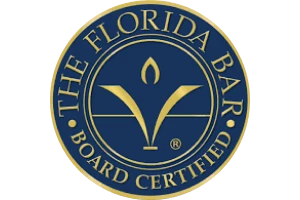Expunge or Seal a Criminal Record
The Importance of a Clean Record for Job Security and Professional Licenses
If you’ve ever had a run-in with the law, you know that it can leave a lasting mark on your life. A criminal record can affect your job prospects, housing options, and even your personal relationships. Fortunately, in the state of Florida, there is a legal process that allows eligible individuals to seal or expunge their criminal records. To find out if you are eligible, continue reading and take the first step towards a fresh start. For those ready to reclaim their future, consulting a legal expert can be the key to navigating this process successfully.
Understanding the Impact of a Criminal Record
A criminal record can have far-reaching consequences, affecting various aspects of your life. The stigma associated with a criminal record can hinder your ability to secure employment, obtain professional licenses, and even impact personal relationships. Employers and licensing boards often conduct background checks, and a criminal record can raise red flags, making it difficult to move forward professionally and personally.
Job Security and Career Advancement
In today’s competitive job market, employers are increasingly relying on background checks to vet potential employees. A criminal record can be a significant barrier to securing employment. Many employers have strict policies against hiring individuals with certain types of criminal records, particularly in fields such as education, healthcare, finance, and law enforcement. Even in less regulated industries, a criminal record can still be a disadvantage.
Moreover, a criminal record can impede career advancement. Promotions and job opportunities may be limited, and in some cases, you may even risk losing your current job if your employer becomes aware of your criminal history. Sealing or expunging your record can help mitigate these risks, allowing you to pursue your career goals without the burden of a past mistake.
Obtaining Professional Licenses
Professional licenses are crucial for many careers, particularly in regulated fields such as healthcare, law, education, and finance. Licensing boards often have strict criteria for approving applications, and a criminal record can be a significant hurdle. In some cases, a criminal record can lead to the denial of a license, suspension, or even revocation of an existing license.
For professionals who rely on their licenses to practice, the ability to seal or expunge a criminal record can be a lifeline. By removing or sealing past convictions, you can improve your chances of obtaining or retaining the necessary licenses to continue working in your chosen field. Taking proactive steps to clear your record can be crucial for maintaining your livelihood and professional reputation.
Am I Eligible to Expunge or Seal a Florida Criminal Record?
Navigating the process of sealing or expunging a criminal record in Florida involves understanding the eligibility criteria outlined in state laws. The Florida expungement laws are intricate and can be found in Sections s.943.0585 – s.943.059, Florida Statutes, and Chapter 11C-7, Florida Administrative Code. Here is a simple series of questions and answers to determine your eligibility:
- Have you ever been adjudicated guilty of any criminal offense?
- If yes, you are not eligible to seal or expunge your record.
- If no, proceed to the next question.
- Have you ever had a criminal record sealed or expunged before?
- If yes, you are not eligible to seal or expunge another record.
- If no, proceed to the next question.
- Is the offense you are seeking to seal or expunge one that can be legally sealed or expunged under Florida law?
- Certain offenses, such as serious violent crimes and certain sex offenses, cannot be sealed or expunged.
- If the offense qualifies, you may be eligible to proceed.
The Importance of Professional Guidance
Navigating these laws can be challenging, which is why it’s essential to seek professional guidance. If you’re considering expunging your record, remember that you only have one opportunity to do so. Therefore, it’s crucial to be cautious and consult with an experienced lawyer who knows what needs to be done. Call W.F. Casey Ebsary Jr., a Board Certified Criminal Trial Lawyer in Florida, at (813) 222-2220 for expert advice. Taking this step can significantly impact your eligibility and the success of your application.
The Process of Sealing or Expunging a Criminal Record
Once you have determined your eligibility, the process of sealing or expunging a criminal record involves several steps. Understanding these steps can help you prepare and increase your chances of a successful outcome.
Step 1: Obtain a Certificate of Eligibility
The first step is to obtain a Certificate of Eligibility from the Florida Department of Law Enforcement (FDLE). This certificate confirms that you meet the basic criteria to apply for sealing or expunging your record. The application process involves submitting fingerprints, a processing fee, and supporting documentation to the FDLE.
Step 2: File a Petition with the Court
After obtaining the Certificate of Eligibility, the next step is to file a petition with the court. This petition must include the certificate, a sworn statement attesting to your eligibility, and any other required documents. It is essential to follow the court’s procedures carefully to avoid delays or rejection of your petition.
Step 3: Attend a Court Hearing
In many cases, a court hearing will be scheduled to review your petition. During this hearing, the judge will consider your eligibility and any objections from the state attorney’s office. Having legal representation can be beneficial during this stage, as an experienced lawyer can present your case effectively and address any concerns raised by the court or the prosecution.
Step 4: Obtain a Court Order
If the judge approves your petition, a court order will be issued to seal or expunge your record. This order directs the relevant agencies, such as law enforcement and court clerks, to remove or seal your records from public view. Once the order is issued, it is crucial to ensure that all agencies comply with the court’s directive.
The Benefits of Sealing or Expunging Your Record
Sealing or expunging your criminal record can provide numerous benefits, allowing you to move forward with your life without the burden of a past mistake. Here are some of the key advantages:
Improved Employment Opportunities
With a sealed or expunged record, you can apply for jobs with confidence, knowing that potential employers will not see your past criminal history. This can open up new opportunities and make it easier to secure employment in your desired field.
Enhanced Professional Reputation
For those in regulated professions, a clean record is essential for maintaining a positive professional reputation. Sealing or expunging your record can help you avoid the stigma associated with a criminal history, allowing you to build trust with clients, colleagues, and employers.
Better Housing Options
Landlords and housing agencies often conduct background checks on potential tenants. A criminal record can limit your housing options, making it difficult to find a place to live. By sealing or expunging your record, you can improve your chances of being approved for rental properties and other housing opportunities.
Peace of Mind
Perhaps one of the most significant benefits of sealing or expunging your record is the peace of mind it provides. Knowing that your past mistakes are not visible to the public can alleviate stress and anxiety, allowing you to focus on building a positive future.
Take the First Step Towards a Fresh Start
If you have a criminal record, taking steps to seal or expunge it can significantly impact your life for the better. Don’t let a past mistake hold you back from achieving your goals. Consult with a knowledgeable attorney who can guide you through the process and help you understand your options. Call W.F. Casey Ebsary Jr., a Board Certified Criminal Trial Lawyer in Florida, at (813) 222-2220 to take the first step towards regaining your peace of mind and securing your future.
Understanding the Legal Terminology
It’s essential to understand the legal terminology associated with sealing and expunging records in Florida. Here are some key terms:
- Sealing: When a criminal record is sealed, it is hidden from public view but still exists within the legal system. Law enforcement and certain agencies may still access sealed records under specific circumstances.
- Expungement: Expunging a record involves the physical destruction of the record. Once expunged, the record is removed from all databases and cannot be accessed by anyone, including law enforcement, except under very limited conditions.
Differences Between Sealing and Expunging
Understanding the differences between sealing and expunging a record is crucial. While both processes hide your criminal history from public view, expungement offers a higher level of privacy by completely removing the record from existence. However, not all offenses are eligible for expungement, and the process may be more complex. Consulting with an experienced attorney can help you determine which option is best suited for your situation.
Summary
A criminal record can have long-lasting consequences, affecting your job prospects, professional licenses, and overall quality of life. In Tampa Bay, Florida, the process of sealing or expunging a criminal record provides a pathway to mitigate these impacts and regain control over your future. Understanding your eligibility and navigating the legal process can be challenging, but with the right guidance and support, you can achieve a fresh start.
Take the first step towards reclaiming your life by consulting with a qualified legal professional. Call W.F. Casey Ebsary Jr., a Board Certified Criminal Trial Lawyer in Florida, at (813) 222-2220 for expert advice and assistance. Sealing or expunging your record can open up new opportunities, enhance your professional reputation, and provide the peace of mind you deserve. Don’t let a past mistake define your future—act now to secure a brighter tomorrow.
Sealing vs. Expunging: What’s the Difference?
Understanding the difference between sealing and expunging a criminal record is essential. A sealed record is placed under highly restricted access, and it can typically be opened only for inspection by a judge, you, your attorney, a criminal justice agency, and sometimes a prospective employer. On the other hand, an expunged record would no longer exist since all the files and any reference to it are completely destroyed.
Start Here: See If You Are Eligible to Seal or Expunge Your Record
To determine your eligibility, answer the following questions:
Have You Been Charged With Any Of The Following?
- Abuse of an elderly person or disabled person
- Act of domestic violence as defined in §741.28 F.S.
- Act of terrorism as defined in §775.30 F.S.
- Aggravated assault
- Aggravated battery
- Aircraft piracy
- Arson
- Attempting or conspiring to commit any of the above crimes
- Burglary of a dwelling
- Carjacking
- Child abuse or aggravated child abuse
- Home invasion robbery
- Homicide
- Illegal use of explosives
- Indecent assault act upon or in the presence of a child under the age of 16
- Kidnapping
- Lewd, lascivious act upon or in the presence of a child under the age of 16
- Manslaughter
- Manufacturing any substances in violation of Chapter 893
- Robbery
- Sexual activity with a child who is 12 years of age or older but less than 18 years of age
- Sexual battery
- Stalking and aggravated stalking
If your answer is YES, If your answer is YES, it may affect your eligibility. If your answer is NO, move on to the next question.
Have You Ever Been Adjudicated Guilty Before?
- Do you have a criminal offense guilty adjudication or comparable ordinance violation (including criminal driving offenses such as DUI, reckless driving, and driving while the license suspended)?
- Did the acts stemming from your arrest or alleged criminal activity
result in guilty adjudication?
If your answer is YES, If your answer is YES, it may affect your eligibility. If your answer is NO, proceed to the next question.
What About Court Supervision?
- Are you currently being supervised by the court?
If your answer is YES, you may still be eligible someday. If your answer is NO, move on to the next question.
Any Prior Sealing?
- Have you had a prior sealing or expunction of a criminal record?
If your answer is YES, it may affect your eligibility. If your answer is NO, then you may be eligible to seal or expunge your record.
Will You Seal or Expunge Your Record?
If adjudication was withheld, your case was dismissed, or you were acquitted during or after trial, you should be eligible to petition the court to seal your record. After your record has been sealed for a minimum of 10 years, you may apply to have your record expunged.
The process of sealing or expunging a criminal record is complex and requires careful attention to detail. To ensure the best possible outcome and to navigate the intricacies of Florida’s expungement laws, it’s highly recommended to seek legal counsel. Call W.F. Casey Ebsary Jr., a Board Certified Criminal Trial Lawyer in Florida, at (813) 222-2220 for expert assistance in this complicated process.
Regain control over your life and your future. Don’t let a past mistake continue to haunt you. Take the first step towards a clean slate by determining your eligibility for record sealing or expungement. Contact us today, and let us guide you through the process, providing you with the expert legal representation you need to move forward with confidence.





